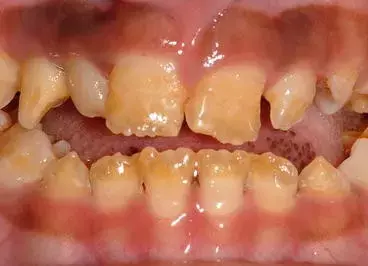- Home
- Medical news & Guidelines
- Anesthesiology
- Cardiology and CTVS
- Critical Care
- Dentistry
- Dermatology
- Diabetes and Endocrinology
- ENT
- Gastroenterology
- Medicine
- Nephrology
- Neurology
- Obstretics-Gynaecology
- Oncology
- Ophthalmology
- Orthopaedics
- Pediatrics-Neonatology
- Psychiatry
- Pulmonology
- Radiology
- Surgery
- Urology
- Laboratory Medicine
- Diet
- Nursing
- Paramedical
- Physiotherapy
- Health news
- Fact Check
- Bone Health Fact Check
- Brain Health Fact Check
- Cancer Related Fact Check
- Child Care Fact Check
- Dental and oral health fact check
- Diabetes and metabolic health fact check
- Diet and Nutrition Fact Check
- Eye and ENT Care Fact Check
- Fitness fact check
- Gut health fact check
- Heart health fact check
- Kidney health fact check
- Medical education fact check
- Men's health fact check
- Respiratory fact check
- Skin and hair care fact check
- Vaccine and Immunization fact check
- Women's health fact check
- AYUSH
- State News
- Andaman and Nicobar Islands
- Andhra Pradesh
- Arunachal Pradesh
- Assam
- Bihar
- Chandigarh
- Chattisgarh
- Dadra and Nagar Haveli
- Daman and Diu
- Delhi
- Goa
- Gujarat
- Haryana
- Himachal Pradesh
- Jammu & Kashmir
- Jharkhand
- Karnataka
- Kerala
- Ladakh
- Lakshadweep
- Madhya Pradesh
- Maharashtra
- Manipur
- Meghalaya
- Mizoram
- Nagaland
- Odisha
- Puducherry
- Punjab
- Rajasthan
- Sikkim
- Tamil Nadu
- Telangana
- Tripura
- Uttar Pradesh
- Uttrakhand
- West Bengal
- Medical Education
- Industry
Use of glucocorticoids with NS tied with developmental abnormalities of teeth in kids

Long-term use of glucocorticoids in children with nephrotic syndrome is tied with the occurrence of developmental abnormalities of the teeth, according to a recent study published in the International Dental Journal.
Nephrotic syndrome (NS) is a clinical condition that occurs with proteinuria of severity that exceeds the compensating possibilities of the organism (50 mg/kg/d), due to increased permeability of glomerules for plasma proteins. A characteristic of NS is its recurrence, sometimes even every few months. Children mostly experience idiopathic NS as a result of minimal change disease, treated by glucocorticoids. The symptoms of the disease occur before the age of 12; the average age of development is between 3 and 5 years. The frequency of NS cases for children younger than 16 years old is estimated between 2 and 7 new cases for every 100,000 children. The average frequency is 16 cases for every 100,000 people.
Treatment with glucocorticoids in children with nephrotic syndrome can be the cause of developmental disorders of the masticatory organ and bone or teeth abnormalities. The aim was to assess the frequency and type of dental abnormalities and the correlation of their occurrence with a dosage of glucocorticoids and treatment time in children with idiopathic nephrotic syndrome.
The study group consisted of 31 patients aged 5 to 17 diagnosed with idiopathic steroid-sensitive nephrotic syndrome and 33 overall healthy children. The studies included clinical evaluation of dentition, radiologic diagnostics, and statistical analysis.
Results of the study are:
In the study group, 77.4% of patients were diagnosed with abnormalities in dental development. Tooth number disorders, presence of persistent deciduous teeth and impacted teeth, abnormal crown or root shape, developmental defects of enamel, pulp stones, and bone structure disorders were identified. Statistical analysis showed significant differences in the average treatment time of glucocorticoids in patients without and with tooth developmental abnormalities.
Thus, long-term use of glucocorticoids in children with nephrotic syndrome promotes the occurrence of developmental abnormalities of the teeth, calcification of the pulp, and disorders of bone tissue metabolism. For this reason, patients with steroid-sensitive nephrotic syndrome should be under the constant care of a dentist.
Reference:
Developmental Abnormalities of Teeth in Children with Nephrotic Syndrome by Paula Piekoszewska-Ziętek et al. published in the International Dental Journal.
https://www.sciencedirect.com/science/article/pii/S0020653921002653
Keywords:
Paula Piekoszewsk-Ziętek, Dorota Olczak-Kowalczyk, Małgorzata Pańczyk-Tomaszewska, Dariusz Gozdowski, Developmental Abnormalities of Teeth in Children, Abnormalities of Teeth and Nephrotic Syndrome, Nephrotic Syndrome and teeth health in children, Nephrotic Syndrome and children, International Dental Journal, Nephrotic syndrome, Glucocorticoids, Developmental defects of enamel, Oral cavity
Dr. Shravani Dali has completed her BDS from Pravara institute of medical sciences, loni. Following which she extensively worked in the healthcare sector for 2+ years. She has been actively involved in writing blogs in field of health and wellness. Currently she is pursuing her Masters of public health-health administration from Tata institute of social sciences. She can be contacted at editorial@medicaldialogues.in.


